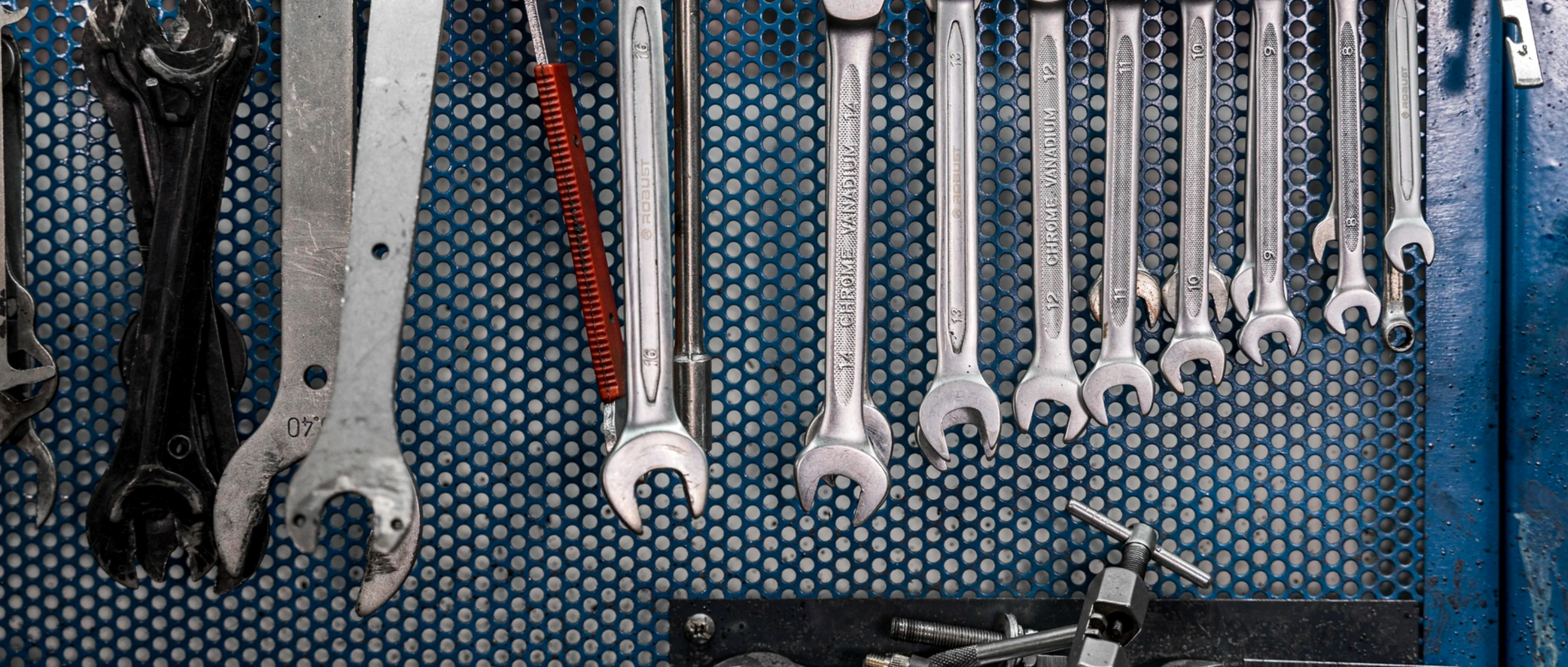Archive for October 2020Free Money (Almost) (Fuel Saving Tips)Posted October 25, 2020 10:26 AMPlease wait while the video is loading... You spend a lot of money on a vehicle, probably the most money you'll spend on anything except a house. But the spending doesn't stop after you've bought it. It goes into things like insurance, repairs and fuel. One good piece of news is that you can cut down the amount you spend on fuel if you follow a few tips. Keep your speed under 50 mph/80 kph. Anything over that and your fuel economy will go down quickly the faster you go. Sure, you can legally drive faster than that, but practice this one tip and it can save you from 7%-14% on fuel. Use cruise control. The steady speed increases fuel economy by avoiding unnecessary braking and accelerating. If your vehicle is carrying unnecessary weight, unload it. If you can save 100 pounds/45 kilograms, it can save you 1% of your fuel. Don't idle. Let's say you're sitting in a parking lot with your engine running for 10 seconds. Any more and you're wasting fuel. Turn off your engine and start it when you have to get going. You may have noticed that many newer vehicles automatically turn the engine off when the vehicle stops. Avoid using a roof rack. A cargo box strapped on the top of your vehicle can reduce your fuel economy by 2%-8% in city driving, by 6%-17% on the highway and by 10%-25% at highway speeds over 65 mph/105 mph. Also, if you have roof rails on your vehicle with crossbars, you can save 1% of fuel simply by storing them somewhere else. Some vehicles like Chrysler's Pacifica minivan allow you to store the crossbars inside the roof rails to reduce drag. Keep tires at their recommended inflation. It can save you 3% of your fuel bill. Use the right motor oil for your vehicle. Using the wrong kind can cost you 1%-2% more money on fuel. Sure, many of those savings are small on their own. But add them up and you'd be surprised at how much you can save. Also, keep in mind that a well maintained vehicle will also save you fuel, so make regular maintenance trips to your vehicle service facility. Car Doc On The Island 'Tis the Season (Tires)Posted October 18, 2020 1:54 AMWe all know about winter tires. But did you know there is such a thing as summer tires? Most people have all-season tires on their vehicles. They work pretty well in a variety of weather conditions. But if you want better handling and performance, you might consider switching to summer tires. Here are a few things you should know about them. Summer tires are good for high-performance vehicles like sports cars and luxury SUVs, but they don't have to be limited to those. They have a different tread pattern than all-season tires, with generally shallower grooves and more rubber that contacts the road. The rubber is made of a stickier compound good for taking corners at higher speeds. Plus it is engineered so it stays firmer the hotter the temperature gets. Here's a bonus. That design also works well in warm, wet weather. It makes sense, since more the more rubber that's touching the concrete or asphalt when it's slippery out, the better the traction. There are some things to be aware of with summer tires. They often have asymmetrical or unidirectional tread patterns. That sometimes limits the way these tires can be rotated on a vehicle. Another thing to remember is it is NOT a good idea to use summer tires in any wintery conditions. They lose traction as the temperature heads toward the freezing range and below since that rubber that's designed to stay firm at warm temperatures gets hard as a rock when they freeze. But in warmer weather, summer tires can increase your braking and cornering capabilities. Plus you'll notice more grip at faster speeds and higher temperatures than all-season tires. So think about discussing summer tires with your service advisor to see if they'd be a good fit for the type of driving you do. He or she will offer you some choices that are designed to meet your vehicle's specs. Car Doc On The Island A Not-So-Straight Story (Vehicle Pulls to One Side)Posted October 11, 2020 11:42 AMA vehicle should travel straight down a straight road with the steering wheel centered. But time and travel can take their toll and soon you may find your vehicle pulling to the left or right. Those are not good signs and should be taken care of fairly quickly. One thing that you should note is when this is happening: if it is all the time, only when you brake, only when you accelerate. If you describe these symptoms to the service adviser or technician, it may help them pinpoint the cause more quickly. Many things can cause a vehicle to pull to one side, one of which is that it's out of alignment. If so, you could be doing damage to other components of your vehicle if you keep driving with it this way. If your tires show signs of uneven wear on the treads or if your wheels squealing, that is another clue. Improperly inflated tires can also cause your vehicle to pull in one direction. Your service facility can check to see if your tires have the pressure recommended by your vehicle's manufacturer. When steering linkage wears out or a wheel bearing goes bad, both of those can cause a vehicle not to track straight. When components age and loosen up, they can present a safety hazard and premature tire wearing. Maybe you notice the pulling only when you are braking. That points to a failure of your braking system, perhaps a sticky brake caliper. When your vehicle was brand new, it went straight unless you guided it on a different path. It's best to have it checked out if it is showing some of these symptoms. It could save you money in the long run and you'll be driving a safer, better performing vehicle. That's what they mean by steering you right! Car Doc On The Island Out with the Old (Vehicle Parts that Wear Out)Posted October 4, 2020 9:42 AMSome drivers don't pay any attention to their vehicles until something breaks. Others take them into their service repair facility for maintenance even before a problem develops. Still, even if you fit into the second group, there are some parts on a vehicle that will simply wear out over time. Your vehicle has gaskets in several places. They use a flexible material to seal the gaps between metal parts that fit together. After time, that material shrinks or gets brittle and fails. Eventually, after time, you will have to get gaskets replaced. Same goes for belts. Your engine has belts that help take the mechanical energy of the engine to drive other parts such as the generator and air conditioner. Heat and age will eventually cause these belts to wear out or break, so you'll need new ones at some point. You'll also find yourself buying brake pads. As much as you may try to go easy on them, brake pads work by wearing off a little bit of them each time they help you stop your vehicle. Do a lot of stop-and-go driving and you'll hasten the process. No battery lasts forever, and your vehicle's battery is no exception. It can only charge and discharge electricity so many times. Count on getting no more than 4 or 5 years out of a battery, fewer if you live in a very hot spot. Other parts that don't age well? Tires. They can have plenty of tread left on them, but rubber gets old and loses its flexibility. Tires have their date of manufacturer stamped on them for a reason. Finally, your muffler is being subject to moisture from inside and out: inside because of moisture-containing exhaust and outside from the elements outdoors. Stainless steel or other alloys will last longer, but after a while, either the moisture or constant pounding from vibrations will take their toll. That's why it's important to maintain every part on your vehicle. You can't wave a magic wand and make everything last forever, but take care of your vehicle and it'll take care of you.
| ||
SearchArchiveApril 2016 (16)May 2016 (5) June 2016 (4) July 2016 (4) August 2016 (5) September 2016 (4) October 2016 (5) November 2016 (4) December 2016 (4) January 2017 (5) February 2017 (4) March 2017 (4) April 2017 (5) May 2017 (4) June 2017 (4) July 2017 (5) August 2017 (4) September 2017 (3) October 2017 (5) November 2017 (4) December 2017 (3) January 2018 (5) February 2018 (4) March 2018 (4) April 2018 (5) May 2018 (4) June 2018 (4) July 2018 (5) August 2018 (4) September 2018 (5) October 2018 (4) November 2018 (4) December 2018 (5) January 2019 (5) February 2019 (4) March 2019 (5) April 2019 (4) May 2019 (4) June 2019 (5) July 2019 (4) August 2019 (4) September 2019 (5) October 2019 (4) November 2019 (4) December 2019 (5) January 2020 (5) February 2020 (4) March 2020 (5) April 2020 (4) May 2020 (5) June 2020 (4) July 2020 (4) August 2020 (5) September 2020 (4) October 2020 (4) November 2020 (5) December 2020 (4) January 2021 (6) February 2021 (4) March 2021 (4) April 2021 (4) May 2021 (5) June 2021 (4) July 2021 (4) August 2021 (5) September 2021 (4) October 2021 (5) November 2021 (4) December 2021 (4) January 2022 (6) February 2022 (4) March 2022 (4) April 2022 (4) May 2022 (5) June 2022 (4) July 2022 (5) August 2022 (4) September 2022 (4) October 2022 (5) November 2022 (4) December 2022 (4) January 2023 (5) February 2023 (4) March 2023 (4) April 2023 (5) May 2023 (4) June 2023 (4) July 2023 (5) August 2023 (4) September 2023 (4) October 2023 (5) November 2023 (4) December 2023 (5) January 2024 (5) February 2024 (4) March 2024 (5) April 2024 (4) May 2024 (4) June 2024 (5) July 2024 (4) August 2024 (4) September 2024 (5) October 2024 (4) November 2024 (4) December 2024 (5) January 2025 (4) February 2025 (4) March 2025 (4) | CategoriesKeys to a long lasting vehicle (2)Timing Belt (2)Fuel Economy (8)Brakes (12)Fluids (7)Maintenance (8)Air Conditioning (6)Safety (1)Exhaust (6)Service Standards (3)Steering (8)What Customers Should Know (67)Dashboard (1)Fuel System (4)Cooling System (5)Alternator (5)Battery (9)Auto Safety (5)Windshield Wipers (2)Service Intervals (2)Wheel Bearings (1)Customer Detective Work (1)Shocks & Struts (2)Tires and Wheels (2)Tire Rotation and Balancing (3)Alignment (4)Winter Tires (1)Tires (8)Suspension (1)Inspection (3)TPMS (2)Drive Train (3)Automotive News (2)Safe Driving (1)Fuel Saving Tip: Slow Down (1)Winter Prep (3)Check Engine Light (2)Oil Change (4)Brake Service (2)Differential Service (1)Spark Plugs (1)Older Vehicles (1)Headlamps (1)Transmission (4)Transfer Case Service (1)Engine Air Filter (1)Cabin Air Filter (1)Fuel Pump (1) | |

AUTONET TV

Testimonials

My truck broke down last week and after calling around Car Doc was the one that was able to get it done sooner. From the minute I called till the day that I pick my car up, they kept me informed they were very professional, respectful and courteous. I will definitely be using them going forward.~ Robert Serena, 03/25/2025










